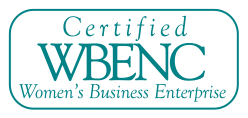

You get lower costs, full transparency, and total plan control with a self-funded plan customized by CDB. See how our self-funded plans compare to fully insured plans below.


















Since 1991, CDB has been providing businesses like yours in Ohio, Kentucky, and Indiana with customized benefits plans that improve care while saving money.
We act as an extension of your HR department. We live answer all calls so you and your employees can get the answers you need quickly.
CDB is the largest independently owned and operated third-party administrator in the tri-state area, which means you get more flexibility.
With our executive dashboard, you get access to all your data with user-friendly analytics and customized reporting, making it easy to identify potential savings.

A self-funded plan is a type of employer-sponsored health insurance that gives employers and plan sponsors direct oversight of their health benefits. Instead of having a traditional insurance carrier manage everything in a fully insured setup, self-funding allows the savings from paying actual claims (rather than fixed premiums) to benefit the plan directly, rather than going to an insurer. This structure empowers organizations to keep more of their healthcare dollars.
The most appealing aspect of a self-funded plan is the flexibility it offers in customizing benefits. Employers gain the power to tailor specific coverage, benefit types, and amounts to match their workforce’s needs. This allows organizations to maximize their healthcare spending by aligning benefits with their unique employee population. While the federal government has increasingly mandated certain health benefits over the past 25-30 years, self-funded plans still provide ample opportunities to personalize plan offerings and operations, benefiting both employers and their teams while helping control costs.
This is where stop-loss insurance comes in. Stop-loss coverage acts as a safeguard, protecting the plan or employer from significant financial setbacks if claims escalate unexpectedly. The plan trustee or employer (the controlling authority) can determine the appropriate trigger levels for both specific and aggregate stop-loss coverage to purchase. Third-Party Administrators (TPAs) are highly familiar with stop-loss providers and often work closely with them to arrange this coverage on behalf of the plan or employer, ensuring seamless coordination of the plan’s operations. This coverage can be acquired by and for either the plan or the employer, with the primary goal of ensuring that all benefits promised in the Plan Document will be paid.
A Third-Party Administrator (TPA) is an external firm hired for their specialized expertise in managing the daily operations of a health plan. Their function is similar to that of law firms or CPA firms—they are experts brought in to handle specific, ongoing duties. While sponsoring a self-funded plan might seem intricate, the TPA guides employers and plan sponsors through the entire process, executing various plan functions under the employer’s or plan sponsor’s direction or approval. Just as a self-funded employer can select which benefits to offer, they can also decide which responsibilities they want their TPA to manage. Key responsibilities often include assisting with claims management, plan enrollment, reporting requirements, and plan document coordination. Ultimately, the plan sponsor always retains ultimate control of a self-funded plan, much like a taxpayer remains responsible even when a professional prepares their taxes. This underscores the importance of choosing a trustworthy and experienced TPA.

We went from having an artificially high bill to Custom Design Benefits doing reference-based pricing. Their TrueCost program brought some honesty to a barely transparent system.
Bob Rack, President
Holland Roofing Group
“Our employees love the plan and we get great customer service.”
“The transition was easy, and we're able to provide a high quality health care service to our employees at affordable costs.”
“We built a system that is better for the company and better for our employees.”
Hours of Operation:
Monday — Friday
8:00 am to 5:00 pm EST
513.598.2929 Local Cincinnati Area
800.598.2929 Toll-Free
